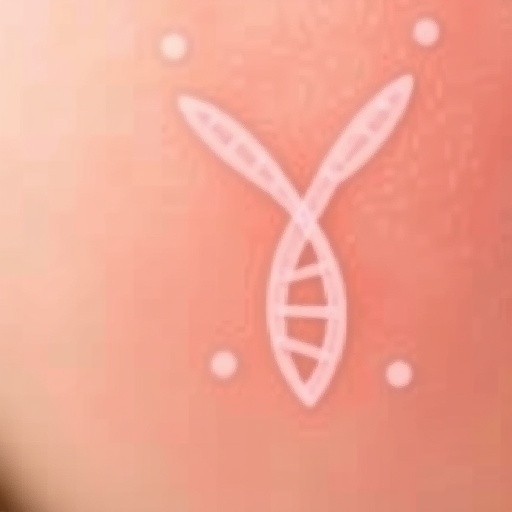A groundbreaking study conducted by investigators at NYU Langone Health and its Perlmutter Cancer Center has revealed a previously unknown genetic determinant that explains why a significant portion of metastatic melanoma patients fail to respond to immune checkpoint inhibitor therapies. This discovery, arising from an extensive analysis of over 1,200 patient samples from the international CheckMate-067 Phase 3 clinical trial, has identified a mitochondrial DNA haplogroup, specifically MT haplogroup T (HG-T), as a potent biomarker linked to immunotherapy resistance. Metastatic melanoma, the deadliest skin cancer variant affecting thousands annually, has long challenged clinicians due to its variable response rates to the revolutionary class of immune checkpoint inhibitors.
Immune checkpoint inhibitors have transformed oncology by enabling the immune system to recognize and attack cancer cells, harnessing mechanisms that unmask tumors previously invisible to immune surveillance. These therapies, including agents like nivolumab and ipilimumab, function by inhibiting checkpoint molecules on immune T cells that otherwise restrain immune activation. However, despite impressive successes, nearly half of treated metastatic melanoma patients show resistance or non-responsiveness to these agents. Understanding the biological underpinnings of such resistance has remained elusive until now.
The research team employed sophisticated genetic sequencing techniques to analyze mitochondrial DNA, a unique subset of genetic material inherited maternally and localized within cellular mitochondria—organelles responsible for energy production and metabolic regulation. Unlike nuclear DNA, mitochondrial DNA has diverged evolutionarily into distinct haplogroups, labeled A through Z, representing populations and their ancestral lineages worldwide. This study focused on the MT haplogroup T, and its association with clinical outcomes in melanoma immunotherapy, a novel approach in cancer genomics.
Through the analysis of blood samples collected during the CheckMate-067 trial, which spanned over 100 medical centers across 19 countries, scientists determined that patients harboring the HG-T mutation were over three times less likely to benefit from checkpoint inhibitors compared to those without the mutation. This finding was further corroborated by a validation set involving nearly 400 additional metastatic melanoma patients from the International Germline Immuno-Oncology Melanoma Consortium (IO-GEM), reinforcing the robustness of the data and the generalizability of the conclusions.
Mitochondrial mutations have historically been linked to diverse cellular dysfunctions but have only recently been implicated in immune modulation. The study posits that the HG-T variant confers an intrinsic resistance mechanism by influencing T cell development and function. Researchers observed that patients with HG-T mutations exhibited a preponderance of underdeveloped or poorly differentiated T cells, critical immune effectors responsible for targeting and eliminating malignant cells. This defect suggested a substantive impact of mitochondrial genetics on antitumor immunity.
Mechanistic insights revealed that the HG-T haplogroup may enhance cellular resilience against reactive oxygen species (ROS), chemically reactive molecules that often accumulate in inflammatory environments like tumors. ROS can either facilitate immune cell activation or cause cellular damage depending on their levels and localization. The augmented ROS resistance in HG-T patients appeared to blunt T cell differentiation and activation, thereby diminishing the immune system’s capacity to mount an effective anti-cancer response upon checkpoint inhibition.
The implications of these findings are profound for personalized cancer therapy. Identification of mitochondrial haplogroups as predictive biomarkers opens new avenues for stratifying patients likely to respond to immunotherapy and those who might benefit from alternative treatments. Such precision medicine approaches could greatly improve survival outcomes in metastatic melanoma by optimizing therapeutic choices based on inherited mitochondrial genetics.
Beyond melanoma, the research team speculates that mitochondrial genetic variation might exert broader influence over immunotherapy success in other cancers. The interplay between mitochondrial function, ROS metabolism, and immune cell development represents an emerging frontier with potential to unveil universal principles governing cancer-immune interactions. Future clinical trials aimed at prospectively testing immunotherapy efficacy based on mitochondrial haplogroup status are underway to validate these concepts.
The study also underscores the importance of integrating mitochondrial genomics into cancer immunology research, challenging the predominant focus on nuclear DNA mutations and tumor-specific alterations. By expanding the genetic lens to include maternally inherited mitochondrial contributions, this research highlights novel biological pathways that modulate therapeutic resistance and tumor microenvironment dynamics.
Funding for this landmark investigation was provided by multiple National Institutes of Health grants alongside support from the Melanoma Research Alliance and the Italian Ministry of Health. Importantly, the drugs evaluated in the CheckMate trial, developed and supplied by pharmaceutical giant Bristol Myers Squibb, underscore the collaborative effort between academic researchers and industry partners essential for advancing cancer treatment.
This discovery marks a significant milestone in understanding metastatic melanoma’s complex biology and the variable responses to checkpoint blockade therapy. As the oncology community embraces an era of personalized medicine, mitochondrial haplogroup profiling may soon become part of routine clinical practice, guiding treatment decisions and improving prognostication in patients battling this aggressive form of skin cancer.
Subject of Research: People
Article Title: Inherited mitochondrial genetics predicts clinical efficacy of immune checkpoint inhibition therapies in melanoma
News Publication Date: 5-Jun-2025
Web References:
10.1038/s41591-025-03699-3
Keywords: Cancer immunotherapy, Skin cancer




